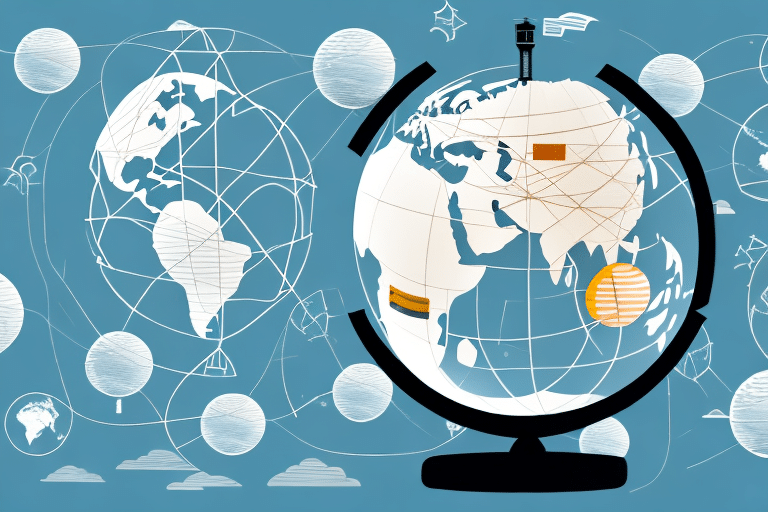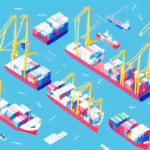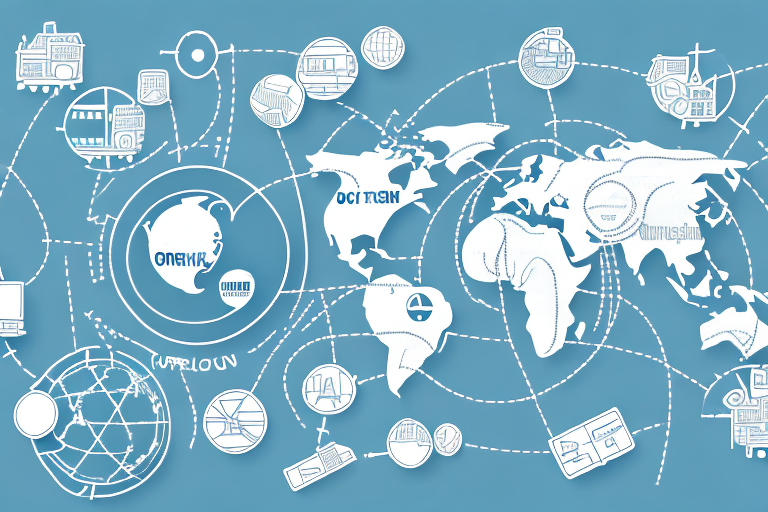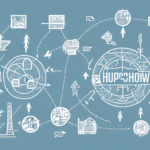Understanding Duties and Taxes in UPS WorldShip
If you frequently use UPS WorldShip for international shipping, it's crucial to grasp the concepts of duties and taxes. This comprehensive guide explores what duties and taxes are in UPS WorldShip, their importance, responsibilities, calculation methods, common issues, and effective management strategies. Additionally, we’ll delve into the role of brokers and the advantages of using automated solutions to streamline these processes.
What are Duties and Taxes?
Duties and taxes are charges imposed by a country's customs authorities on imported goods. These charges serve multiple purposes, including protecting domestic industries from foreign competition, ensuring compliance with local regulations, and generating government revenue. In UPS WorldShip, these charges are automatically applied to every international shipment sent and received.
The amount of duties and taxes can vary based on the country of origin and destination, as well as the type of goods being shipped. While UPS WorldShip provides an estimate, the final amount may be adjusted by customs authorities upon shipment inspection. Typically, the recipient is responsible for paying these charges before the shipment is released for delivery.
Why Understanding Duties and Taxes is Important
Understanding duties and taxes is vital to prevent shipment rejections or delays at customs, which can lead to lost business and dissatisfied customers. Accurate knowledge of these costs allows you to:
- Provide Accurate Quotes: Ensure you can offer precise pricing to your customers, avoiding unexpected expenses.
- Informed Sourcing Decisions: Choose suppliers from countries with favorable tax rates and regulations, optimizing your overall costs.
- Regulatory Compliance: Stay compliant with local laws to avoid fines and legal issues that can harm your business reputation.
Types and Calculation of Duties and Taxes
Different Types of Duties and Taxes
Several types of duties and taxes may apply to international shipments in UPS WorldShip:
- Import Duty: A tax on imported goods based on their declared value, weight, volume, or other measures.
- Value-Added Tax (VAT): A tax on the value added at each stage of the supply chain, typically around 20% in many countries. Learn more.
- Excise Duty: A tax on specific goods such as alcohol, tobacco, and fuel.
- Customs Fee: A fee charged by customs authorities for processing and inspecting shipments.
The specific duties and taxes depend on the destination country and the type of goods being shipped. It's essential to research the regulations and requirements for each destination to ensure compliance and accurate cost estimation.
How Duties and Taxes are Calculated
The calculation of duties and taxes depends on factors such as:
- Value of Goods: Higher-value items generally incur higher duties.
- Country of Origin: Different countries have varying tax rates and trade agreements.
- HS Codes: The Harmonized System code classifies goods for customs purposes, determining applicable duties and taxes. More on HS Codes.
- Intended Use: Personal use vs. commercial use can affect tax rates.
UPS WorldShip automates this calculation based on the provided information, but accuracy is paramount. Incorrect or incomplete data can lead to miscalculations, causing delays and additional fees.
Common Issues and Solutions
Common Issues with Duties and Taxes
- Incorrect Calculations: Inaccurate information can result in wrong duties and taxes, leading to delays or fines.
- Delays at Customs: Questions or issues from customs can hold up shipments for extended periods.
- Unexpected Expenses: Recipients may be surprised by the charges, harming business relationships.
- Inconsistent Regulations: Varying customs regulations across countries can cause confusion and mistakes.
- Misclassification of Goods: Incorrect HS codes can lead to overpaying or underpaying duties and taxes.
Tips for Managing Duties and Taxes
- Verify All Information: Ensure that all data entered into UPS WorldShip is accurate and complete.
- Communicate Clearly with Customers: Inform customers about expected duties and taxes upfront, providing detailed invoices.
- Stay Informed: Keep abreast of changes in customs laws and regulations for your target countries.
Additionally, using UPS WorldShip's built-in tools to look up tariff codes and estimate landed costs can streamline the process and reduce errors.
Best Practices for Managing Duties and Taxes
Use a Customs Broker
If you're unfamiliar with the customs regulations of your shipping destinations, hiring a customs broker can be beneficial. Brokers are experts in navigating customs paperwork and requirements, ensuring compliance and efficient shipment processing.
- Expert Knowledge: Brokers provide insights into complex customs regulations.
- Efficient Handling: They manage all paperwork and logistics, minimizing delays.
- Cost Savings: Brokers can identify exemptions and special programs to reduce duties and taxes.
Invest in Automation
Automated duty and tax calculation solutions can save time and reduce errors. These tools use up-to-date data and algorithms to ensure accurate calculations, improving cash flow by predicting costs accurately.
- Saves Time: Automates complex calculations instantly.
- Reduces Errors: Minimizes manual input mistakes.
- Improves Cash Flow: Predicts costs accurately, avoiding unexpected expenses.
Track All Shipments
Implement a robust system to track all shipments. This ensures that you can monitor the status of each shipment and promptly address any issues that arise. Informing customers about their shipment status enhances transparency and trust.
The Role and Benefits of Brokers and Automated Solutions
Understanding the Role of Brokers
Brokers specialize in customs regulations and can significantly ease the international shipping process. They handle the intricate paperwork and ensure that all regulatory requirements are met, reducing the risk of delays and fines.
- Expert Knowledge: In-depth understanding of customs laws and regulations.
- Efficient Processing: Swift handling of documentation and compliance checks.
- Cost Efficiency: Identifying ways to minimize duties and taxes.
Benefits of Using Automated Solutions
Automated solutions for managing duties and taxes offer several advantages:
- Saves Time: Automated calculations and documentation streamline the shipping process.
- Reduces Errors: Ensures accurate duties and taxes through precise data handling.
- Enhances Accuracy: Utilizes current data and algorithms for reliable calculations.
- Improves Cash Flow: Accurate cost predictions help in financial planning.
By integrating these solutions with UPS WorldShip, businesses can achieve greater efficiency and reliability in their international shipping operations.
Conclusion
Duties and taxes are integral components of international shipping through UPS WorldShip. By understanding their implications, accurately calculating them, and implementing best practices, you can ensure smooth shipment processing, maintain customer satisfaction, and uphold compliance with international regulations. Utilizing the expertise of customs brokers and leveraging automated solutions further enhances your ability to manage these charges effectively, contributing to the profitability and success of your business.






















